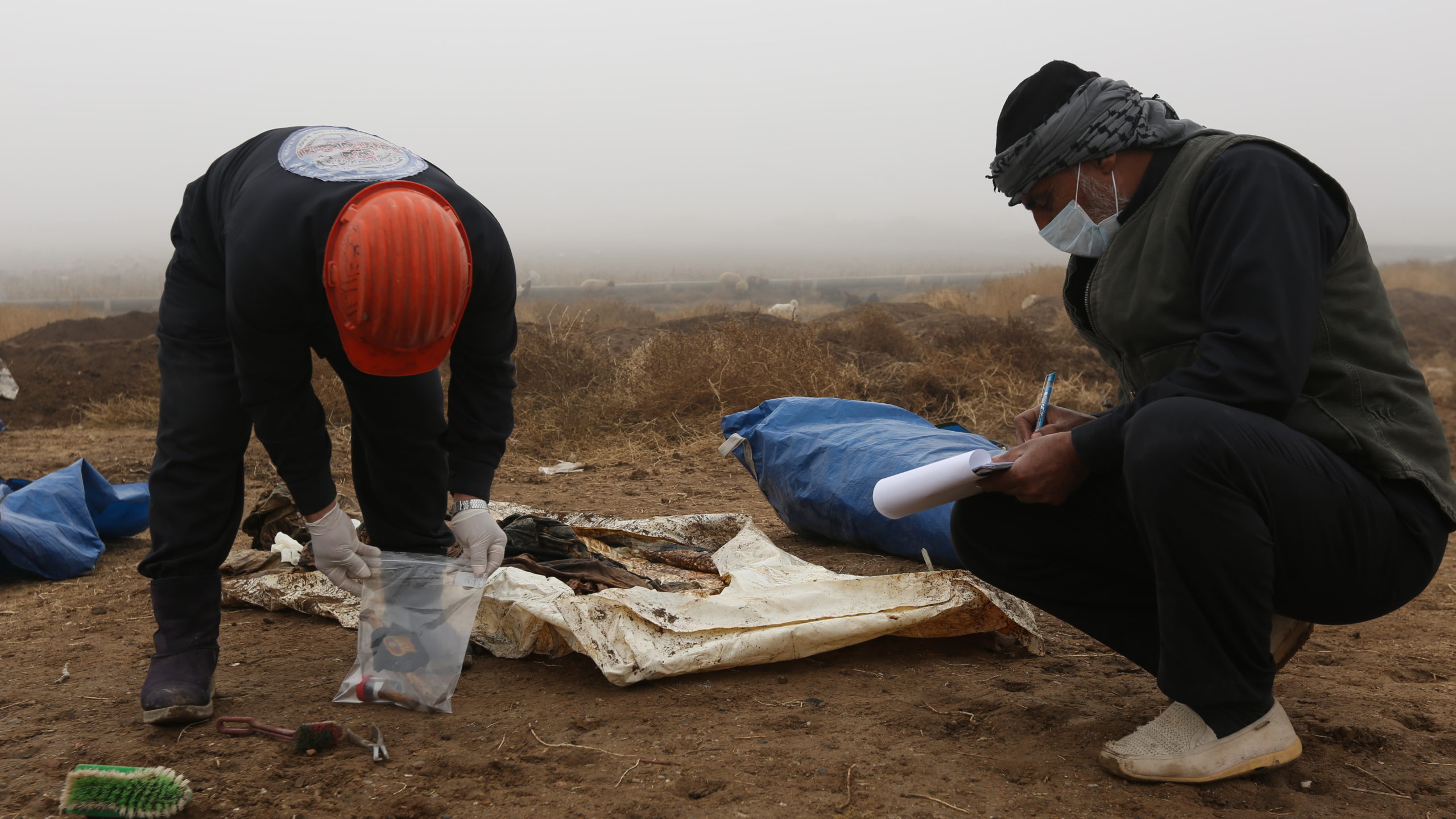The mass surrender of ISIS fighters has created problems for governing groups in northeast Syria. How to deal with jihadists to prevent an insurgency in Iraq and Syria? And how to address the scale of the atrocities that were committed?
Too often ISIS members are not being charged for the full range of war crimes that the group is responsible for. Crucial evidence about disappeared people, mass graves and other human rights abuses is being overlooked.
Families of the missing are calling for urgent steps to uncover the fate of their loved ones:
Question ISIS detainees about missing people
Detention centers in Northeast Syria and Iraqi Kurdistan, as well as in countries that have repatriated ISIS fighters, must prioritize interrogating ISIS detainees about the whereabouts of missing persons, and ISIS’s kidnapping and detention practices. Trials of ISIS fighters should similarly include questions about the missing and kidnapped.
ISIS fighters captured in the northeast hold important information about the fate of the kidnapped. Among them, there could be civilians who were kidnapped by ISIS and are being mistaken for fighters.
Countries such as the UK, Belgium, France, and the Netherlands don’t want to repatriate ISIS fighters, and have gone as far as stripping fighters of their citizenship to prevent them from returning home. But holding trials in these countries could give the families of the missing a chance to seek justice.
Trials of ISIS fighters and former members should be publicly accessible and courts must relay findings to families of the missing and explain the mechanisms being used to pursue investigations.
Provide financial support to first responders exhuming mass graves
The international community needs to provide long-term financial support to the First Responders Team: Team of local people created by local councils in the northeast to undertake exhumations of mass graves.First Responders Team First Responders Team who are exhuming mass graves so that they can continue their difficult work with job security, access to necessary technical equipment and international forensic expertise to avoid the potential destruction or mishandling of evidence.
Work with the families of the missing
Local authorities should engage with families of the missing, to inform them about steps being taken to search for the missing, as well as decisions to release or try former ISIS fighters.
The families of the disappeared must be given information about their loved ones. Authorities hold information about their relatives that could be instrumental to finding and identifying them.
The absence of channels of communication is causing significant distress to the families, who themselves must be recognized as victims of ISIS.
